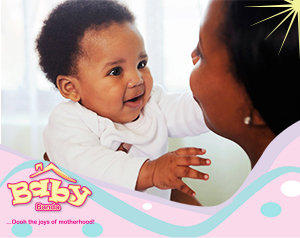At birth, the brain is not completely mature. The parts of the brain that handle thinking and remembering, as well as emotional and social behaviour, are underdeveloped. The fact that the brain matures in the world, rather than the womb, means young children are deeply affected by their early experiences. It is therefore vital for parents to interact positively with the newborn as this will influence the future outcome of that child e.g. a neglected child will be shy, withdrawn and not trusting, whilst a loved and well cared for baby will be confident and trusting of the world.
Touching, rocking, talking, smiling, and singing all affect brain development. Babies experience relationships through their senses. They read the way you look into their eyes, they see the expressions on our face, they hear you cooing, singing, talking and singing, they feel you holding or rocking them, and they take in your familiar smells. Touch is especially important, holding and stroking stimulate the brain to release important hormones necessary for growth.
Ensure that you:
1. Be warm, loving, and responsive. This makes your child trust you and feels secure.
2. Talk, read, and sing to the child. This stimulates the development of speech and language.
3. Establish routines. This helps a baby settle down. Babies thrive when they know what to expect and when things are predictable.
4. Encourage safe exploration and play. Give your baby space to experiment e.g. giving them ‘tummy time’, put them on the floor with toys.













